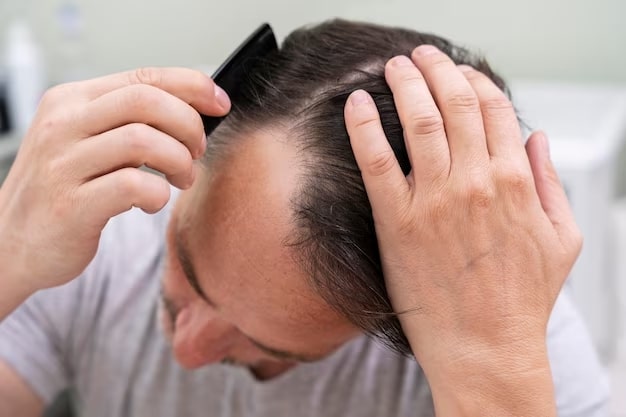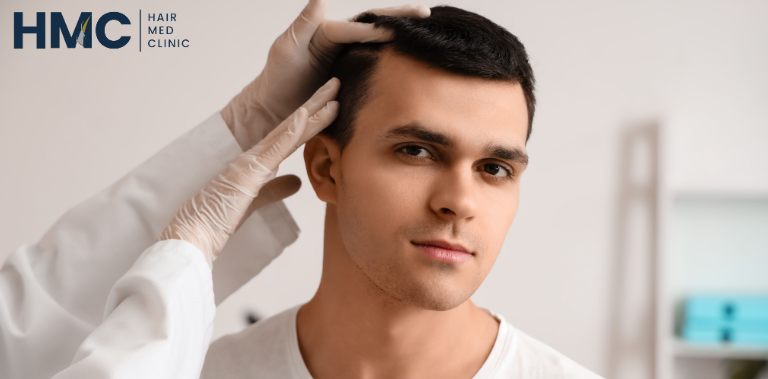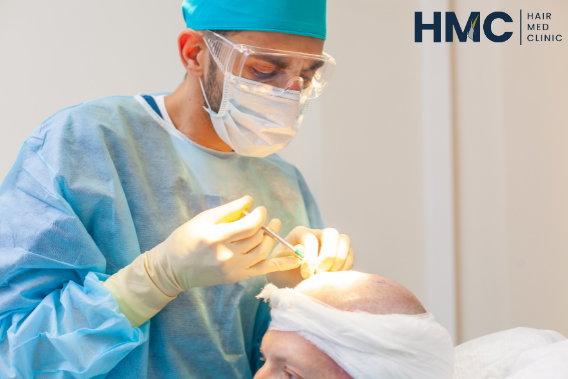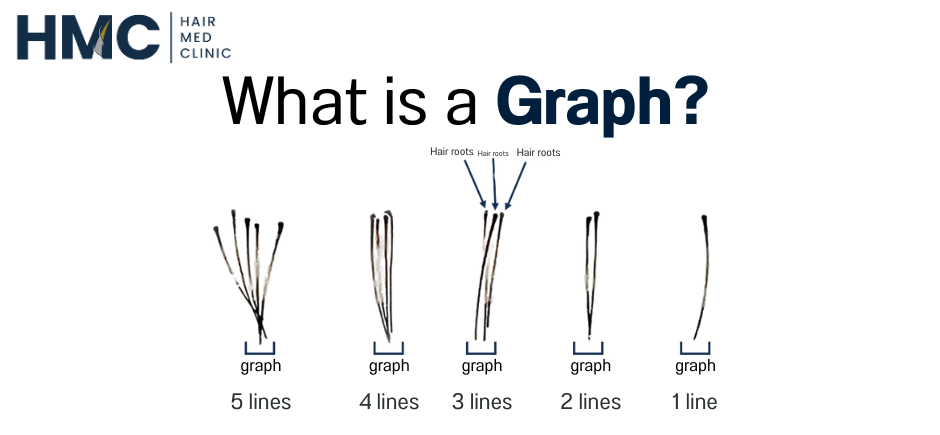Hormones play a crucial role in regulating hair growth and health.
Various hormones can affect hair in different ways, influencing its growth, density,
and overall condition. Here’s a detailed look at how different hormones impact hair:
1. Sex Hormones
- Testosterone and Dihydrotestosterone (DHT):
- Androgenetic Alopecia: Testosterone and its derivative DHT are linked to androgenetic alopecia,
commonly known as male or female pattern baldness. High levels of DHT can shrink hair follicles,
leading to thinner hair and eventually hair loss.
-
- Hair Growth: DHT can contribute to hair loss by shortening the hair growth phase (anagen)
and prolonging the resting phase (telogen).
- Estrogen:
- Hair Growth Stimulation: Estrogen promotes hair growth and prolongs the anagen phase.
Increased estrogen levels during pregnancy or with the use of birth control pills often lead to thicker, healthier hair.
-
- Postpartum Hair Loss: After childbirth, estrogen levels drop,
which can cause increased hair shedding, a condition known as postpartum alopecia.
- Progesterone:
- Hair Health: Progesterone helps to balance estrogen and testosterone levels,
potentially affecting hair growth. Its levels fluctuate during menstrual cycles, pregnancy, and menopause.
2. Thyroid Hormones
- Thyroxine (T4) and Triiodothyronine (T3):
- Thyroid Dysfunction: Both hypothyroidism (low thyroid hormone levels) and hyperthyroidism
(high thyroid hormone levels) can lead to hair problems. Hypothyroidism often results in dry,
brittle hair and hair loss, while hyperthyroidism can cause thinning hair.
3. Stress Hormones
- Cortisol:
- Stress-Related Hair Loss: High cortisol levels due to chronic stress can lead to telogen effluvium,
a condition where hair prematurely enters the resting phase and falls out.
Stress can also exacerbate existing hair loss conditions.
4. Other Hormones
- Insulin:
- PCOS and Hair Growth: In conditions like polycystic ovary syndrome (PCOS),
insulin resistance can lead to higher levels of androgens,
which can cause unwanted hair growth (hirsutism) and thinning of hair on the scalp.
- Growth Hormone:
- Hair Follicle Health: Growth hormone affects hair follicle health and regeneration.
Imbalances can impact hair growth and density.
Managing Hormone-Related Hair Issues
- Hormone Testing: If experiencing hair loss or changes in hair health,
hormone testing can help identify imbalances. This can include tests for thyroid function,
androgen levels, and other relevant hormones.
- Medical Treatments: Treatments like minoxidil, finasteride,
or hormone replacement therapy (HRT) can help address hormone-related hair loss.
For thyroid-related issues, managing thyroid hormone levels can restore hair health.
- Stress Management: Techniques to manage stress, such as relaxation exercises,
therapy, or lifestyle changes, can help reduce cortisol levels and minimize stress-related hair loss.
- Balanced Diet: Ensuring a balanced intake of essential nutrients,
including vitamins and minerals, supports overall hair health and can help mitigate hormone-related hair issues.
Understanding the role of hormones in hair health allows for targeted interventions and treatments to address specific issues related to hair growth and loss.







